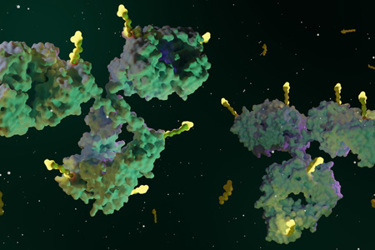Conjugating Antibody To Drug Using ThioBridge® Technology For Better ADCs

Antibody-drug conjugates (ADCs) hold immense promise in targeted cancer therapy, but limitations in conjugation technologies often hinder their full potential. Traditional methods struggle with inconsistent drug-to-antibody ratios and unstable linker attachments, impacting efficacy and manufacturing.
Abzena's ThioBridge® conjugation technology offers a solution to the limitations of first-generation ADC conjugation technologies. This technology provides a more uniform drug-to-antibody ratio, stable linker attachment, and improved pharmacokinetic properties.
ThioBridge® allows for precise modification of disulfide bonds without extensive antibody re-engineering, enabling site-specific conjugation and flexibility in ADC design. It also offers advantages such as greater yield, improved stability, and simplified purification process, making it a valuable tool for ADC development.
The data presented in the application note demonstrate the superior stability, potency, and efficacy of ThioBridge®-conjugated ADCs. The technology's flexibility allows for efficient production and profiling of ADCs for in vivo testing. Explore how a novel conjugation technology is enabling streamlined and cost-efficient production of ADCs, driving the development of effective targeted cancer therapies. Abzena's ThioBridge® conjugation technology is a promising approach for the future of targeted cancer therapy.
Get unlimited access to:
Enter your credentials below to log in. Not yet a member of Bioprocess Online? Subscribe today.
